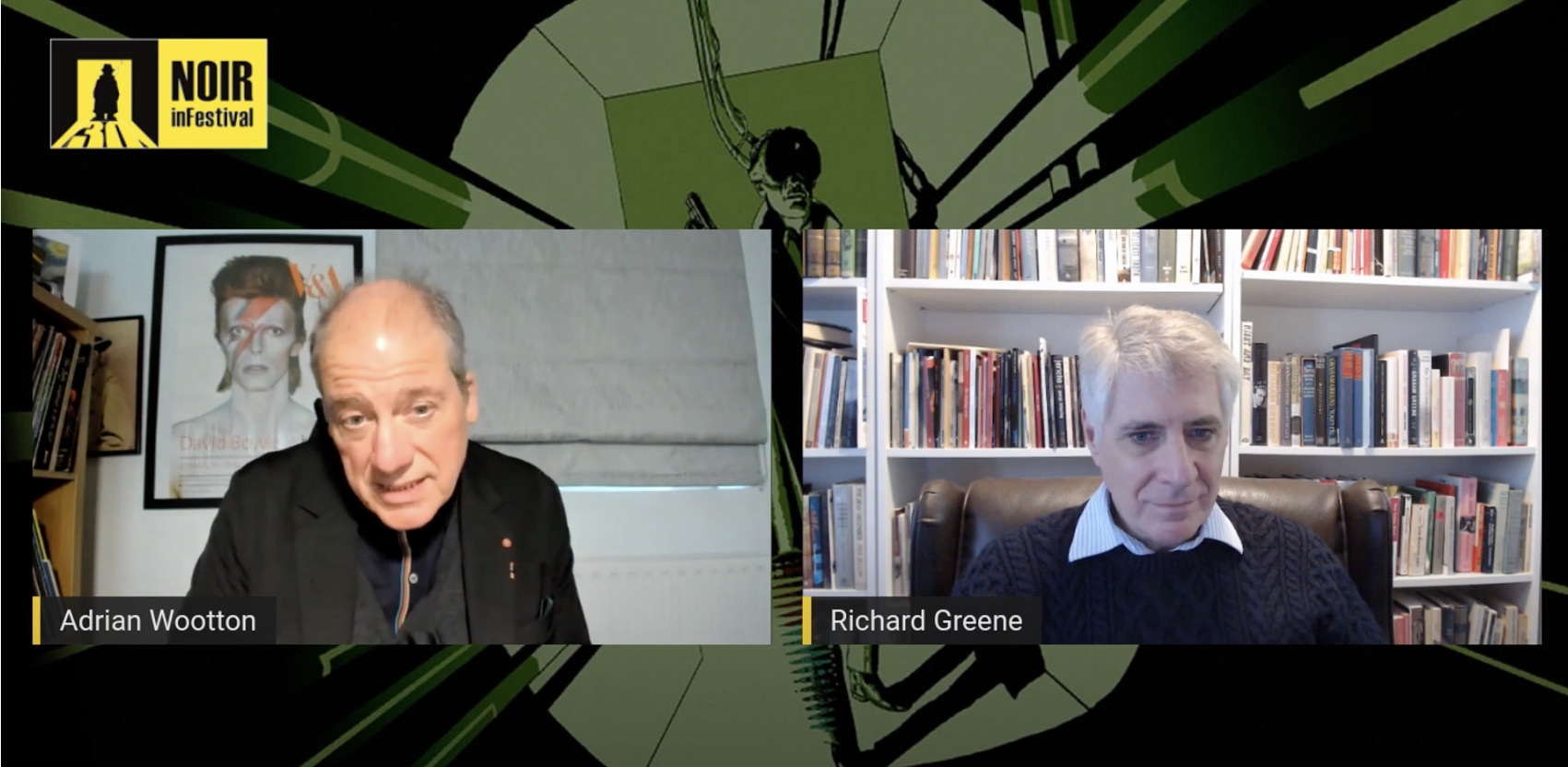
Joining Noir remotely from London, Adrian Wootton held a masterclass on Graham Greene and John le Carré. In the second part of the talk, he presented the book by Richard Greene (no relation): Russian Roulette: The Life and Times of Graham Greene.
If there is an event that is a fixture every year at Noir in Festival, it’s the talks with Adrian Wootton, long-time friend to our festival, with his dazzling contributions to film culture, ranging from profiles of film and literary personalities, especially on the Anglo-American front, to intriguing commentary on their works, lives and times.
In this case, Wootton joined us online from London, instead of in person, to take a fresh look at two authors that have always been closely connected to Noir in Festival: Graham Greene and John le Carré, both winners of the Raymond Chandler Award, the former in 1988, in the festival’s very first year, and the latter in 2001, another radical turning point for the modern world.
Indeed, that world, and human affairs, were the focus of the first part of Wootton’s talk. By way of the two authors’ biographies, and moving back and forth between the private and public spheres, Wootton took the long view, with abundant references to the changing international scene, “cold” wars and “hot wars”, and the bonds and betrayals that have changed the lives of so many.
The trajectories of Greene’s and le Carré’s careers were bound to collide, for reasons both artistic (their genuine mutual esteem is borne out by their reviews and correspondence) as well as political and social (Greene dabbled in actual spying early on and met Kim Philby, while le Carré worked for the British Secret Service until the moment that Philby himself, Greene’s friend, betrayed him and blew his cover).
Naturally, Wootton’s discussion was full of references to the two literary lions’ books and their screen adaptations, but there’s no doubt that the most intriguing part of the talk covered the complex relationship between the two men, which Wootton went into in depth when he talked with Richard Greene (no relation to Graham Greene), author of the biography Russian Roulette: The Life and Times of Graham Greene.
The conversation between Wootton and Greene revealed just how fraught the relationship between Greene and le Carré was, torn between a mutual admiration for each other’s works and profoundly different views on life, starting with le Carré’s enormous disappointment in Greene when he refused to change his mind about Kim Philby, further proof that little personal matters often intersect the broad sweep of history.
